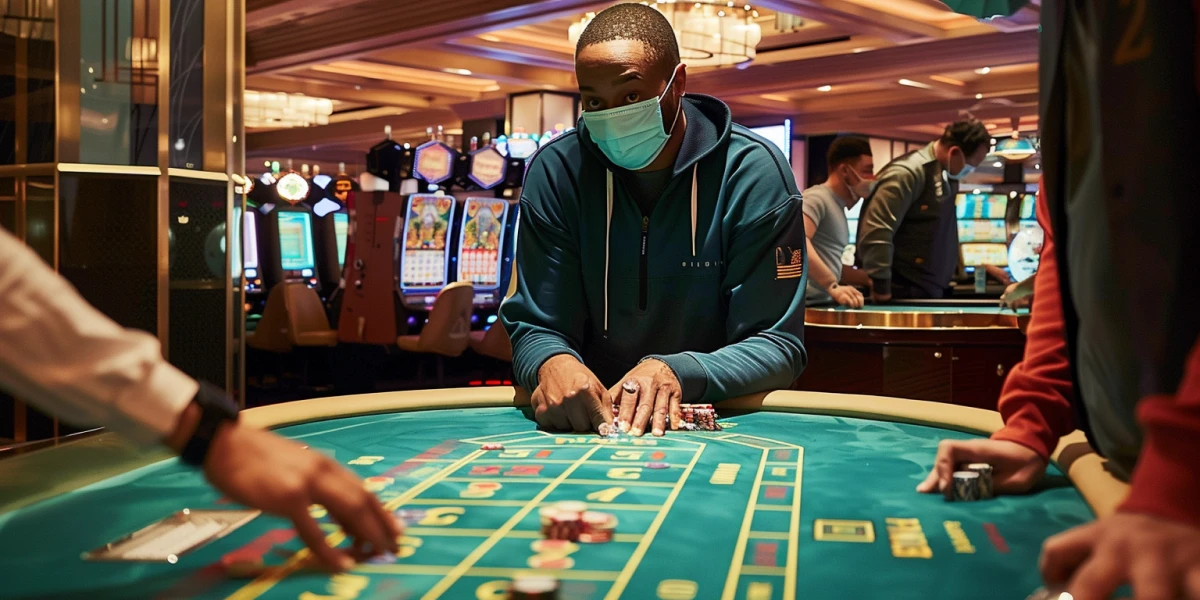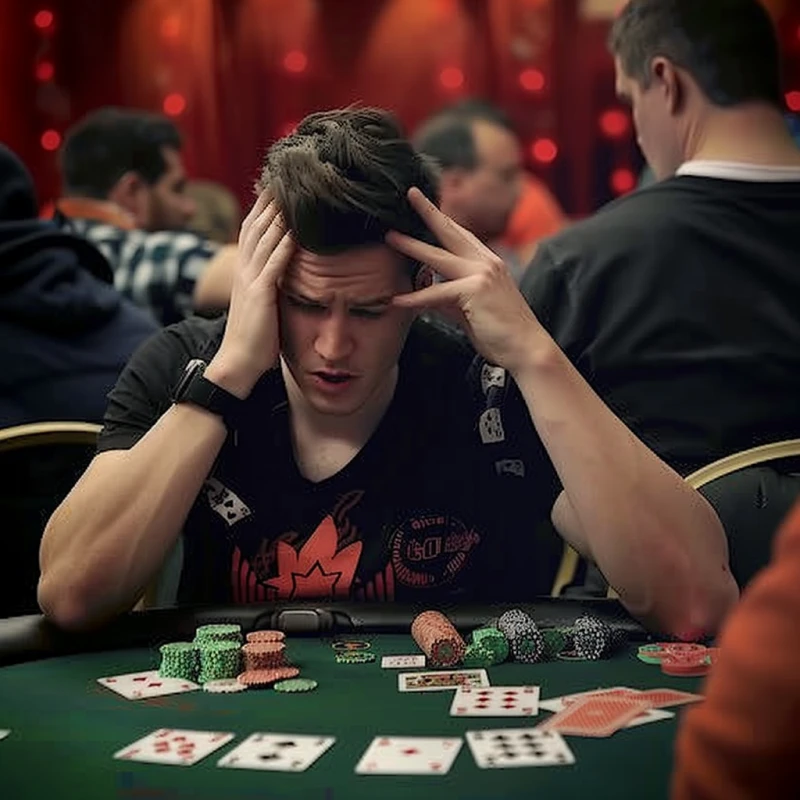Understanding Gambler's Fallacy and the Ripples of Responsible Betting Behaviors


1.0
Default
The thrill of gambling is unmatched for those who make gambling (or unintentionally make) gambling a hobby. With its shimmering lights, catchy slots theme songs, and exciting prizes, the urge to go against responsible gambling protocols and practices can be tempting - but definitely inadvisable.
There’s such a thing called gambler’s fallacy which many casino goers and iGamers continue to overlook in 2024. With more technology and Augmented Reality shaping the way we enjoy our swift yet exciting time at the slots or in our trusty poker game, the more keen first-time bettors or avid gamblers should be more mindful when doling out money to some of the most scintillating entertainment spaces in the US and online.
The gambler’s fallacy has been around for quite a while, dating back to when French mathematician Pierre-Simon Laplace talked about it over 200 years ago in his book, "A Philosophical Essay on Probabilities." He noticed how gamblers often mistakenly think that small sets of outcomes, like a few tosses of a coin or rolls of a dice, can predict future events as if a short streak could tell us what’s coming next. Basically, it's about people wrongly assuming that past random events have an impact on future ones, which shows just how much our minds can play tricks on us when we're trying to make sense of random patterns.
Gambler's fallacy arises from our propensity to believe that if a random occurrence has happened frequently in the past, it will probably happen again in the future. This is what we do for a few reasons. Among them is the dislike of randomness. In order to provide an explanation and make random events seem predictable, we attempt to justify them.
The game of chance almost always imposes higher risk which many players and non-gamblers alike will view as a self-correcting process. In other words, people tend to believe that chance seeks a just and harmonious balance. As a random process takes place, deviations from this equilibrium are corrected by an opposing outcome. Let’s break this down into a familiar situation in a casino. Think about the slot machine gambler who perhaps believes that a turn at the machine is made up of both wins and losses, so when they experience a run of winnings, they begin to anticipate a loss.
Another popular example of a gambler’s fallacy is when you toss or flip a coin in the air. Should we be more inclined to think that the next flip of the coin will probably result in a heads result if it comes up heads seven times in a row, or should we think that the coin will now be much more likely to land tails? Either way, it is false to believe that past experiences will determine future happenings. One thing remains constant: the coin toss's odds are still 50/50.

While this goes back to the 1900s, the Monte Carlo fallacy is another poignant example of the long odds. Picture this, you’re dressed all snazzy in a Monte Carlo casino, about to play roulette, and you observe this scenario play out:
After 10 spins landing on black, gamblers kept betting on red, convinced it was overdue, but the streak continued to 26 spins before a red finally hit. This costly streak at the roulette wheel is known as the "Monte Carlo fallacy," illustrating the classic gambler's fallacy. By the time Red won, losses were huge, and the casino had made a fortune.
This scenario teaches a crucial lesson about probability: each spin of the roulette wheel is independent of the last. No matter how many times black comes up, the chances of red on the next spin remain the same—almost a coin flip, but slightly tilted due to the green zero. Understanding this can save you not just money, but the psychological stress of chasing losses, expecting the odds to tilt in your favor just because they seem due.
Prospect theory is another way that our brains misinterpret numbers. In this case, people typically choose set outcomes over more favorable odds. For example, even if probability theory suggests that we should take the risk in the long run, they would rather take $3 than a 10% chance of gaining $50.
This tendency to opt for certainty over higher potential gains is an interesting quirk people possess, highlighting the natural discomfort with uncertainty and our strong preference for instant rewards. It's like when you choose a smaller, sure-thing snack over the chance of winning a larger feast—sometimes, the bird in hand just feels more reassuring than two in the bush, even if the math says otherwise. This aversion to risk can often lead us to miss out on potentially greater benefits, simply because we're not comfortable with the idea of leaving things to chance.

While we want to believe it’s all about cognitive bias and finding ways to reprogram our brains, it’s not that black and white. We must acknowledge the causal independence of the relevant events in order to mitigate the effects of this cognitive bias.
It's not always simple, particularly when we have a stake in their union. Analyzing the real process behind an event can sometimes make us recognize that similar former events don't actually contribute to its development.
When you don’t exercise the brain and fight cognitive bias from looping you into mental traps, habits tend to form - and in gambling, a habit shouldn’t be present in order to achieve a certain balance in your gameplay. With many iGaming sites and online casinos offering responsible gaming services, it’s best to catch yourself or anyone you may know by looking at some relevant signs.
It’s hard not to notice how modern technology has certainly made problem gaming behaviors worse by making gambling easily accessible around the clock, but it has also brought about a number of new features that can help you limit or even regulate the amount of time you spend gambling or using your device.
Online Casinos
Land-Based Casinos
Knowing gambler's fallacy and its implications might be essential for any gamer, but keep in mind it’s important to see theory in action. By recognizing the independence of each betting event and resisting the lure of "due" outcomes, you can gamble more responsibly. Whether online or in person, setting limits and seeking help when needed can prevent the pitfalls of compulsive gambling behaviors, keeping the fun in the game.
Explore reputable, safe, and reliable online casinos from our reviews at GambleSpot.

July 26th, 2024
7 Best Horses that Made A Name in Horse Racing
July 24th, 2024
The Role of the Banker in Baccarat - and Why This Could Sway Your Odds
July 19th, 2024
5 Best Slot Games for Art Lovers to Feast Their Eyes on
July 16th, 2024
Fact or Fiction: Pai Gow Edition – What First-time Players Should Watch Out For
July 15th, 2024
Tech and Horseracing: What to Know about Digitizing the Horsebetting Experience
July 9th, 2024
5 Online Casinos with Less than $20 Minimum Deposit You Should Check Out in 2024
July 3rd, 2024
Debunking Common Lottery Myths: What First-time Bettors Should Know
July 2nd, 2024
What to Know About the State of Michigan and Online Poker in 2024
July 1st, 2024
Debunking Common Baccarat Myths: Why You Should Know Better
June 27th, 2024
Understanding the Legal Aspects of Horse Betting in the US: What to Know in 2024Are you sure?
This will delete all chat history, and I will not remember what we were talking about.
✔
Todays Hot Deals